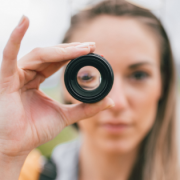Curiosity makes you grow
Curiosity makes you grow, it makes you smarter – we hear that a lot. Actually it is one of the strongest driving forces of humanity. We are curious from the day we are born; we want to understand the things around us.
As children, we try everything we can; even our sense of danger is non-existent at age 3-6: curiosity is much more dominant. It’s not only the danger we do not sense in early childhood – we can’t usually decide what the difference is between good and evil, either. Think about the torturing of little animals: children are so curious it does not occur to them that cutting a frog for example is basically a bad thing. We have to learn that.
Curiosity made us walk erect on two feet, invent fire, wheels and learn to make tools. Mankind have always sought more and more, always asked questions from the simplest to the most complicated levels. Why are we cold? What’s that glowing thing in the sky? Why is it getting dark? What are we? Why are we alive? What happens when we die?

We created a list of the most fascinating inventions of all time so we can see how powerful curiosity itself is.
In the ancient times scientific minds were often also philosophical: philosophy and applied sciences were not as separated from each other as today. Let’s see the most interesting inventions of that era!

- Heron of Alexandria – steam engine
- Roman concrete
- Distillation (Babylonia, 3000 BC)
- Zhang Heng – seismoscope 132 AD)
- Archimedes – Archimedes’ Principle (that a body immersed in a fluid experiences a buoyant force equal to the weight of the fluid it displaces)
- Cai Lun (AD 48-121) – paper and papermaking process
- Tesibius (285-222 BC) – hydraulis (a water organ that is considered the precursor of the modern pipe organ), clepsydra (water clock, the most accurate clock for more than 1800 years)
- Thales of Miletus – the first known individual to use deductive reasoning applied to geometry, by deriving four corollaries to Thales’ theorem. He is the first known individual to whom a mathematical discovery has been attributed.
Later, during the Middle Ages science was a bit more dangerous thing to practice, but even this did not stop the most curious people from experimenting and inventing. We achieved not only major advances in technologies that already existed or adaptations of Eastern technologies but great inventions as well.

- Hourglass (11th century)
- Roger Bacon (1268), eyeglasses
- Spinning wheel (13th century)
- Gutenberg (15th century) – printing press
- Windmills (13th century)
- Copernicus (1543) – Earth is not the center of the universe
- Leonardo da Vinci – plans and designs for many machines, such as flying machines, parachutes, giant crossbows – we can fill a lot of books with these.
And a selection of the greatest inventors of the modern age. Who do you miss? Which of them is the most important?

- Thomas A. Edison – lightbulb, phonograph
- Nikola Tesla – AC electricity
- Charles Babbage – mechanical computer
- Alexander Bell – telephone
- Louis Pasteur – pasteurization
- Heddy Lamarr – frequency-hopping, spread-spectrum technology (predecessor of Bluetooth and WiFi)
- Tim Berners-Lee – world wide web (www)
And how can be curiosity helpful in our lives? Maybe most of us are not big inventors, nor explorers, but we have to face many difficulties every day, and we can use what we learned from the biggest thinkers. Where can I find the best product?
Which is the best service? Modern consumer society has many challenges, and improving customer services with mystery shopping is our chance to make a difference.

Author: Adrienne 
Adrienne is a guest blogger of BARE International. She is interested in many things: from playing music, riding horses, to reading ancient texts in their originally written languages. Basically she never gets bored.
Interested in becoming an Evaluator with BARE International?
[maxbutton id=”9″]
Want to be a guest blogger for BARE’s Mystery Evaluator’s Community?
Apply to: akocsis@bareinternational.com











